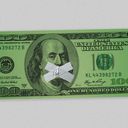United Cheapskates of America

Published Date: 9/19/2019
Source: axios.com
Retailers are under pressure to raise prices on a slew of everyday products. The problem: Americans have become too cheap to let them.Why it matters: Our obsession with cheap stuff is tying the hands of some of the nation's biggest corporations — like Target, Macy's and Walmart — at a time when they're grappling with new tariffs and can't risk offending shoppers during the all-important holiday season.Where it stands: While low unemployment and rising wages have been a boon, U.S. consumers are still worried about price increases — and retailers are scrambling for ways to avoid passing on tariff-related costs to their customers. What they're saying: "Whether the consumer can afford to pay more doesn't matter," David French, senior vice president of government relations at the National Retail Federation, tells Axios. "The consumer is always going to be attracted to the lowest price ... retailers know this." A few examples:Macy’s attempted to pass along those tariff costs — making items like luggage, furniture and other household products more expensive — but the company faced consumer backlash and may reverse those hikes. There was “very little appetite for those cost increases,” CEO Jeff Gennette said in a recent call with Wall Street analysts.Target is putting intense pressure on its suppliers that buy products from China to hold the line on prices. “Our expectation is that you will develop the appropriate contingency plans so that we don’t have to pass price increases along to our [customers],” Mark Tritton, Target's chief merchandising officer, wrote in a memo to suppliers.Prices have ticked higher on some products at Walmart, but executives there say they view price increases as an absolute "last resort." "We constantly want downward pressure on pricing ... And we'll pull all the other levers that we have to get there," Walmart's chief merchandising officer Steve Bratspies said this month at a Goldman Sachs retail conference.Similarly, at Macy's, executives are looking at "mitigation strategies" to avoid raising prices again — even though the most recent round of tariffs, and the impending round, more directly target a range of consumer goods.Apparel prices haven't gone up meaningfully in at least 7 years, according to the Bureau of Labor Statistics' consumer price index. For some items, like toys and cosmetics, prices have actually been trending lower. “We’ve trained customers to be so cheap," Sucharita Kodali, a retail analyst at Forrester Research, tells Axios. “Amazon is a symptom of the consumer obsession with low prices,” not the cause. Cheaper items are the result of more sourcing of goods from overseas, where production costs are lower. But now, companies that rely heavily on parts or items from China are facing an unprecedented threat to decades-old supply chains. U.S. companies, which bear the cost of tariffs, are looking at ways to offset these big expenses.Companies like Kohl's have lowered Wall Street's expectations for its profit margins — already pressured by other in-store promotions — as it tries to avoid any customer impact from tariffs. The bottom line: Economists estimate the trade war could increase costs by hundreds of dollars for the average U.S. household. Companies trying to avoid price hikes aren't sure how long they can hold out if the trade war drags on — or, worse, intensifies.